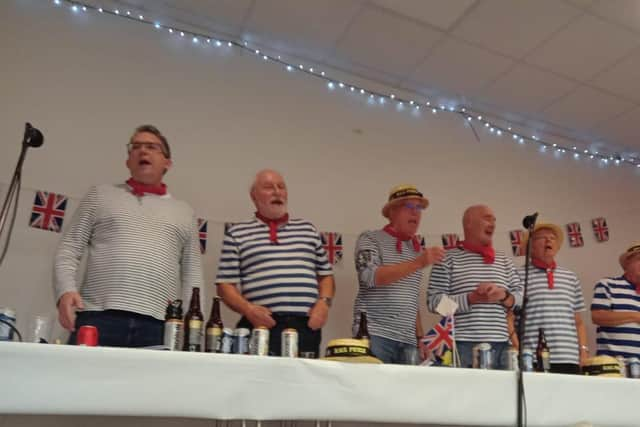Trafalgar, pickles and more at Chichester Yacht Club
and live on Freeview channel 276
By contrast Pickle night is held on or around November. 6. It recognises HMS Pickle, which was the fastest light ship at the Battle of Trafalgar. While officers mark Trafalgar Day with a formal dinner, senior rates adopted Pickle night in a less formal version. St Anne’s Church, East Wittering’s is hosted a Pickle festivity this Saturday, October 28. The Selsey Shantymen have been helping the celebrations at each of these events, bringing their usual traditional shanties and songs of the sea
Each year on October 21 the Battle of Trafalgar is commemorated. Trafalgar Day recognises those who lost their lives on both sides, as well as the British naval victory over the combined French and Spanish fleet. The odds were stacked against Vice-Admiral Nelson, with 26 ships compared to 33 opposition vessels. For an incredible year and a half, Nelson blockaded the French fleet in Toulon to thwart the invasion of Britian planned by the French. The win at Trafalgar gave Britian Naval superiority for over 100 years.
Advertisement
Hide AdAdvertisement
Hide AdEven when the French escaped the port, joined up with the Spanish in March 1805 Nelson pursued them to towards the West Indies, before the French-Spanish fleet turned back and moored up in Cadiz, Spain after the British hunted them down.


The battle of Trafalgar occurred between Cadiz, Spain and the Strait of Gibraltar at Cape Trafalgar in the Atlantic Ocean. At 11.48am on 21st October 1805 the flag on the masthead of HMS Victory signalled the immortal phrase ‘England expects that every man will do his duty’. The battle commenced at midday and lasted till around 5pm.
Approximately 50,000 seamen took part, with British losing 450 and 1,250 wounded, compared to the rival 4,400 dead and 3,300 wounded. The British took an amazing 20,000 prisoners. Despite a great victory the success was overshadowed by the death of Lord Nelson, at the hands of a French marksman. His death came at 4.30pm but by then victory was assured.
Nelson’s legacy as the greatest officer is well deserved, with many daring raids across the world. He joined the Navy at just 12 years of age and by 14 had sailed to the West Indies and was made Captain by 20. He lost the sight in his right eye capturing Corsica, when hit by gravel. He continued to lead from the front, capturing two Spanish ships after leading the boarding party in Cape St Vincent 1797; while his arm was lost leading a landing part to capture Santa Cruz in the Canary Islands.
https://selseyshantymen.co.uk/